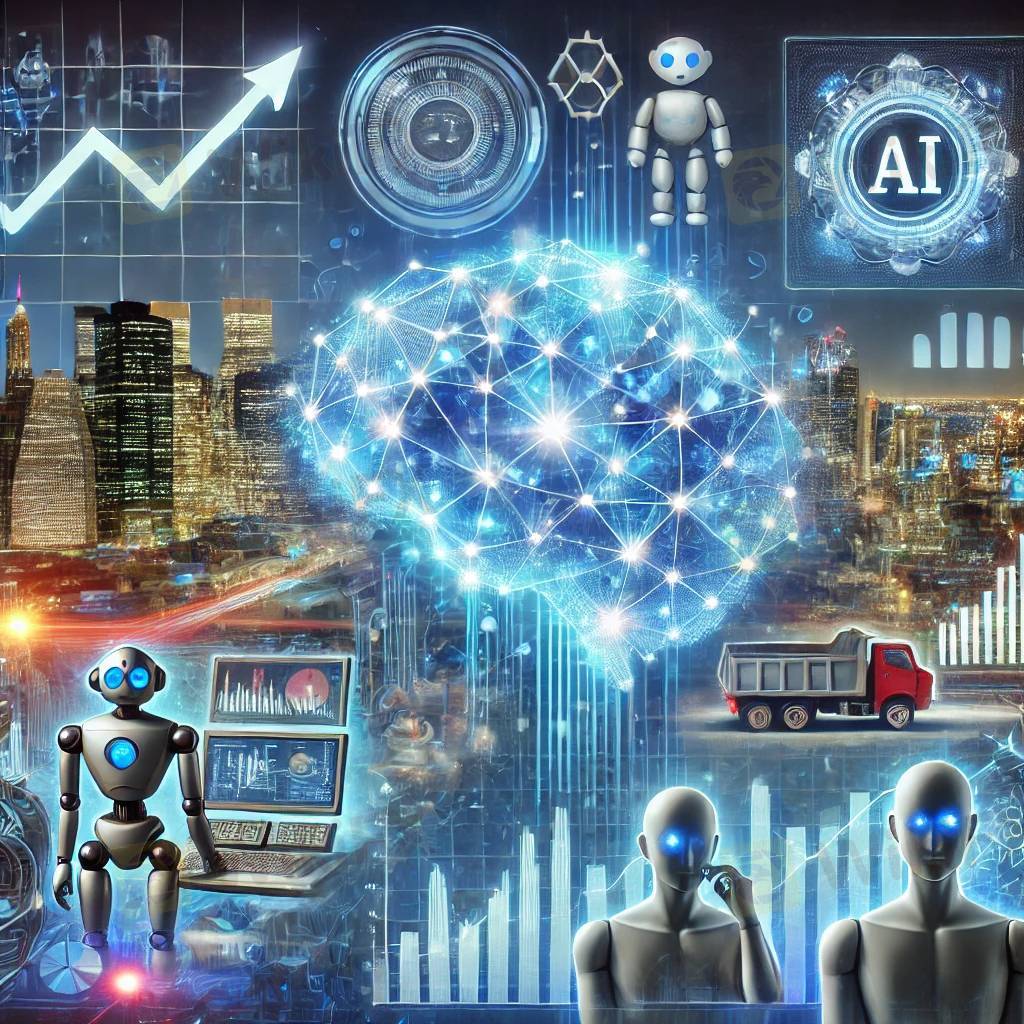
2025-02-17 19:54
업계에서The Economics of Artificial Intelligence
#firstdealofthenewyearastylz
AI is transforming economies by boosting productivity, automating tasks, and driving innovation. While it enhances efficiency in industries like healthcare, finance, and manufacturing, it also disrupts labor markets by replacing routine jobs while creating new opportunities in AI-related fields.
AI’s economic impact extends to business models, reducing costs but requiring significant investments in data, computing power, and skilled labor. Market competition is influenced by AI, with large tech firms gaining advantages while startups leverage AI to enter new markets.
Wealth distribution remains a challenge, as AI-driven automation may widen income inequality. Governments are exploring policies like universal basic income, reskilling programs, and AI taxation to address these disparities.
On a global scale, AI is a key factor in economic competition, with countries investing in AI research to gain strategic advantages. Regulations on data privacy, fairness, and monopolies are shaping how AI integrates into economies.
Overall, while AI offers immense economic benefits, careful policy planning is needed to manage job displacement, inequality, and ethical concerns.
좋아요 0

Nike9214
Brokers
인기있는 콘텐츠
시장 분석
투자주체별매매 동향
시장 분석
유로존 경제 쇠퇴 위기 직면
시장 분석
국제 유가는 어디로
시장 분석
미국증시 레버리지(Leverage)·인버스(Inverse)형의 ETF, 최근 사상 최대 신
시장 분석
투기장 된 원유 ETL...첫 투자위험 발령
시장 분석
RBNZ 양적완화 확대
포럼 카테고리

플랫폼

전시회

대리상

신병 모집

EA

업계에서

시장

인덱스
The Economics of Artificial Intelligence
 홍콩 | 2025-02-17 19:54
홍콩 | 2025-02-17 19:54#firstdealofthenewyearastylz
AI is transforming economies by boosting productivity, automating tasks, and driving innovation. While it enhances efficiency in industries like healthcare, finance, and manufacturing, it also disrupts labor markets by replacing routine jobs while creating new opportunities in AI-related fields.
AI’s economic impact extends to business models, reducing costs but requiring significant investments in data, computing power, and skilled labor. Market competition is influenced by AI, with large tech firms gaining advantages while startups leverage AI to enter new markets.
Wealth distribution remains a challenge, as AI-driven automation may widen income inequality. Governments are exploring policies like universal basic income, reskilling programs, and AI taxation to address these disparities.
On a global scale, AI is a key factor in economic competition, with countries investing in AI research to gain strategic advantages. Regulations on data privacy, fairness, and monopolies are shaping how AI integrates into economies.
Overall, while AI offers immense economic benefits, careful policy planning is needed to manage job displacement, inequality, and ethical concerns.
좋아요 0
나 도 댓 글 달 래.
제출
0코멘트

댓글이 아직 없습니다. 첫 번째를 만드십시오.

제출
댓글이 아직 없습니다. 첫 번째를 만드십시오.